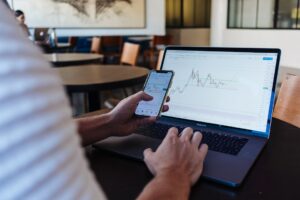Forex Brokers Guide: How to Evaluate and Compare Brokers for Optimal Results
When it comes to trading in the foreign exchange (forex) market, having a reliable and trustworthy forex broker is crucial. A forex broker acts as an intermediary between traders and the forex market, facilitating their trades and providing them with access to various trading tools and platforms. With the abundance of forex brokers available today, it can be overwhelming to choose the right one. This guide will provide you with essential factors to consider when evaluating and comparing forex brokers for optimal trading results.
Regulation and Licensing
The first and most important aspect to consider when evaluating a forex broker is their regulatory status and licensing. Regulatory bodies, such as the Financial Conduct Authority (FCA) in the UK or the Securities and Exchange Commission (SEC) in the US, ensure that brokers comply with strict standards and regulations. Brokers under the supervision of reputable regulatory bodies are more likely to offer a safe and secure trading environment.
Transparency and Reputation
A forex broker’s reputation is another crucial factor to consider. Look for brokers with a solid track record and positive reviews from traders. Transparency is also essential, as a reputable broker should provide clear and concise information about their services, fees, and trading conditions. Avoid brokers with a history of unethical practices or controversies.
Trading Platforms and Tools
The trading platform provided by a forex broker plays a significant role in your trading experience. It should have a user-friendly interface, advanced charting tools, and real-time market data. Popular platforms like MetaTrader 4 (MT4) and MetaTrader 5 (MT5) are widely used in the industry due to their reliability and extensive features. Additionally, consider whether the broker offers mobile trading apps for convenient trading on the go.
Spreads and Fees
Forex brokers earn money through spreads, which are the differences between the buy and sell prices of currency pairs. Lower spreads mean lower trading costs, so it’s essential to compare the spreads offered by different brokers. However, be cautious of brokers that advertise excessively low spreads, as they may compensate for it through hidden fees or poor execution quality. Additionally, consider other fees such as commissions, deposit and withdrawal charges, and inactivity fees.
Leverage and Margin Requirements
Leverage allows traders to control larger positions with a smaller amount of capital. It amplifies both potential profits and losses, so it’s crucial to understand the leverage and margin requirements offered by a broker. Higher leverage can be appealing, but it also increases the risk involved. Ensure that the broker offers leverage options suitable for your risk tolerance and trading strategy.
Account Types and Minimum Deposit
Forex brokers often offer different types of trading accounts to cater to the needs of various traders. These accounts may have different minimum deposit requirements, trading conditions, and additional features. Evaluate the account types offered by brokers and choose the one that best suits your trading goals and financial capabilities.
Customer Support
Reliable customer support is vital when trading the forex market, as technical issues or trading problems may arise. A good forex broker should offer responsive and knowledgeable customer support through various channels such as phone, live chat, or email. Consider testing their customer support capabilities by asking questions or raising concerns before opening an account.
Educational Resources and Research Tools
Forex trading can be complex and challenging, especially for beginners. Look for brokers that provide educational resources such as tutorials, webinars, and trading guides to enhance your trading knowledge and skills. Additionally, consider whether the broker offers research tools, such as market analysis, economic calendars, and trading signals, to help you make informed trading decisions.
Conclusion
Choosing the right forex broker is crucial for your trading success. By considering factors such as regulation, reputation, trading platforms, spreads and fees, leverage, account types, customer support, and educational resources, you can evaluate and compare brokers effectively. Take your time to research and thoroughly evaluate different brokers before making a decision. Remember, a reliable and trustworthy forex broker can significantly impact your trading experience and ultimately lead to optimal trading results.






